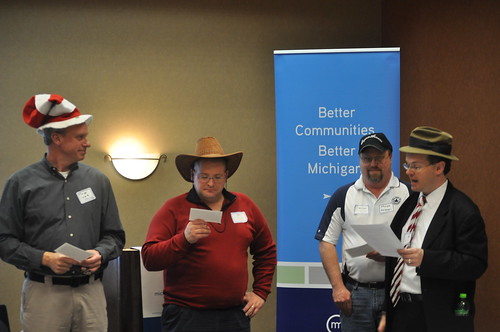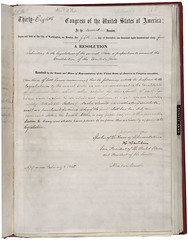This July 4th, See Independence Park with The Constitutional Walking Tour of Historic Philadelphia – ‘Where Every Day is Independence Day’ (TM)
Philadelphia, Pennsylvania (PRWEB) June 28, 2007
Celebrate the July 4th week with The Constitutional Walking Tour of Philadelphia. Visitors to Philadelphia this holiday week will be able to follow in the Founding Fathers’ footsteps with The Constitutional Guided Walking Tour. Philadelphia is best seen by foot, and The Constitutional Walking Tour, Philadelphia’s best sightseeing tour experience, returns and offers visitors the unique opportunity to follow in the Founding Fathers’ footsteps.
The Constitutional Guided Walking Tour is a 75 minute, 1.25 mile outdoor walking adventure in the Independence National Historical Park area which features many historical sites such as the Liberty Bell, Independence Hall, the National Constitution Center and the Betsy Ross House. As such, The Constitutional provides Philadelphia’s visitors with a primary overview of Independence National Historical Park which enables them to decide which sites and attractions to visit in more depth during their stay. Come see why the Chicago Tribune has stated, “No visit to Philadelphia is complete without taking a Constitutional Guided Walking Tour, a 75-minute, mile and a quarter stroll that puts 15 historic sites, from Independence Hall to the National Constitution Center, and Ben Franklin, in perspective.”
Philadelphia’s Best Sightseeing Tour
“The Constitutional is Philadelphia’s quintessential visitor experience,” stated Jonathan Bari, Chairman of The Constitutional Walking Tour. “There is no better place to spend America’s Birthday than in America’s Birthplace, walking in the Founding Fathers’ footsteps, where the first July 4th celebration occurred in 1776.”
Join The Constitutional for an escorted, family-friendly journey through America’s Most Historic Square Mile and see where The Declaration of Independence and The Constitution of the United States were created. See Independence National Historical Park in “High-Def.” Taking The Constitutional Walking Tour of Philadelphia gets visitors up close and personal with a high-definition historical experience. Philadelphia is best seen by foot, and as such, The Constitutional Walking Tour of Philadelphia is the best way to explore Historic Philadelphia, taking you behind the scenes to the places where other tour operators cannot venture.
Daily Guided Tours with Hourly Departures
The Constitutional Guided Walking Tour is Philadelphia’s only walking tour that is offered daily (from Memorial Day through Labor Day) with frequent departures throughout the day from the Independence Visitor Center at 6th & Market Streets. From June 29 through July 8, the tours will be offered 7 days per week, every hour on the hour from 10 AM to 4 PM (starting at 11 AM on Sundays).
The guided tour:
Visits more than 20 of the most popular historic sites and attractions such as the Liberty Bell, Independence Hall, the National Constitution Center and Betsy Ross House;
Showcases scenes from the movies the Shooter and National Treasure;
Provides a 75 minute outdoor walking adventure on a 1.25 mile tour;
Has been named “Top 25 Philadelphia Tourist Attraction” by The Philadelphia Business Journal in 2004 and 2005;
Is offered 7 days a week from Memorial Day through Labor Day (Saturday, May 26, 2006 through Monday, September 3, 2006), and weekends in Spring and Fall, with frequent departures throughout the day from the Independence Visitor Center (at 6th & Market Streets);
Costs $ 17.50 per adult, $ 12.50 per child, ages 3-12. New for 2007 – $ 55.00 for Family Four Pack (2 adults, 2 children ages 3-12)* – A $ 5.00 Savings!
Tickets
Tickets can be purchased:
1) online at http://www.PhillyWalk.com,
2) by calling 215.525.1776,
3) in person at the Independence Visitor Center at 6th & Market Streets in Philadelphia,
4) in person at the National Constitution Center at 5th & Arch Streets in Philadelphia.
About The Constitutional Walking Tour of Philadelphia
The Constitutional Walking Tour of Philadelphia takes visitors on a walking journey through America’s Most Historic Square Mile, the birthplace of our nation – “Where Every Day is Independence Day!”™ Located in Center City Philadelphia, The Constitutional includes many sites within the Independence National Historical Park area, which is home to the Liberty Bell and Independence Hall. The Constitutional guides visitors on a walk through history where The Declaration of Independence and The United States Constitution were created. The Constitutional is one of Philadelphia’s “Top 25 Tourist Attractions” as ranked by the Philadelphia Business Journal and one of the leading providers of School Field Trips of Historic Philadelphia. Visitors can experience The Constitutional: 1) on their own as a free, self-guided walking tour, 2) with a lively tour guide for a fee, 3) with the Philly MP3 Audio Tour or 4) via the Constitutional Cell Phone Tour by calling 215-229-TOUR (8687). For more information on The Constitutional’s self-guided tours, guided tours, field trips, private tours, VIP tours and audio tours, please visit http://www.TheConstitutional.com. Guided and audio tours are offered by The Constitutional Guided Walking Tours, LLC which is a licensee of The Constitutional Foundation, Inc. d/b/a The Constitutional Walking Tour of Philadelphia; a portion of the proceeds from all guided and audio tour fees benefits The Constitutional Foundation and its free self-guided tour.
Editor’s note – Please visit The Constitutional’s various online resources:
High-resolution Photographs of Historic Philadelphia are available for media usage at:http://www.TheConstitutional.com/images .
Story Ideas on The Constitutional Walking Tour, Historic Philadelphia and Heritage Tourism are available for media usage at:http://www.TheConstitutional.com/StoryIdeas .
By the Numbers statistics on The Constitutional Walking Tour and Historic Philadelphia are available for media usage at:http://www.TheConstitutional.com/numbers .
###
 ©Copyright 1997-
©Copyright 1997-
, Vocus PRW Holdings, LLC.
Vocus, PRWeb, and Publicity Wire are trademarks or registered trademarks of Vocus, Inc. or Vocus PRW Holdings, LLC.
More The Constitution Press Releases






